Oversleeping is a common issue that many people experience, but it’s often misunderstood why it happens and what can be done to prevent it. The reasons for oversleeping can vary greatly, ranging from medical conditions to lifestyle factors. Understanding the root causes of oversleeping can be an important first step in addressing this problem and improving overall sleep patterns.
Poor Sleep Quality
Are you constantly hitting the snooze button and struggling to get out of bed in the mornings, no matter how many hours you’ve slept? One reason for oversleeping might be poor sleep quality. It turns out that it’s not just about the quantity of sleep we get, but the quality makes a difference too. When we don’t get enough deep, restorative sleep, our bodies find it much harder to wake up feeling refreshed and energized, making us more prone to oversleeping.
So, what causes poor sleep quality? It can often be attributed to sleep disturbances or disorders, one of the most common being sleep apnea. This condition causes a person to briefly stop breathing during the night, leading to disrupted sleep and reduced oxygen levels in the bloodstream. As a result, they wake up feeling exhausted despite seemingly getting a full night’s sleep. Many are unaware they even suffer from this disorder, as these interruptions can occur so quickly, the person doesn’t even remember waking up.
Other factors contributing to poor sleep quality could be stress, consuming alcohol or caffeine too close to bedtime, electronic use before bed, or an uncomfortable sleeping environment. Sleeping on an old or unsupportive mattress and pillows can also lead to tossing and turning throughout the night, resulting in a less restful slumber.
Understanding the factors behind poor sleep quality is the first step toward addressing what may be causing you to oversleep. By making adjustments to your sleep routine and being aware of potential disturbances, you can work toward getting the quality rest you need to wake up feeling refreshed and ready to tackle the day.

Inconsistent Sleep Schedule
Are you tired of feeling groggy in the morning, missing alarms, and sleeping past your intended wake-up time? It’s time to take a closer look at your sleep schedule! Many people are guilty of having inconsistent sleep routines, where they go to bed and wake up at different times every day. While this might not seem like a big deal, it can seriously disrupt your internal body clock and make it harder for you to wake up on time.
Our bodies have a natural sleep-wake rhythm, often referred to as our “circadian rhythm.” This rhythm helps regulate our sleepiness and wakefulness throughout the day. When you continuously change your bedtime and wake-up times, your body struggles to maintain a consistent rhythm. This not only makes it harder for you to wake up on time but can also impact your overall sleep quality.
To combat this issue, try setting a consistent sleep schedule. Going to bed and waking up at the same time each day, even on weekends, can help your body establish a stable sleep-wake cycle. Not only will this make it easier to wake up on time, but it can also improve your overall sleep quality and energy levels throughout the day.
The next time you’re tempted to stay up late binge-watching your favorite show, remember the importance of consistency in your sleep schedule. Prioritize a good night’s sleep, and you’ll soon reap the benefits of waking up feeling refreshed and ready to seize the day!
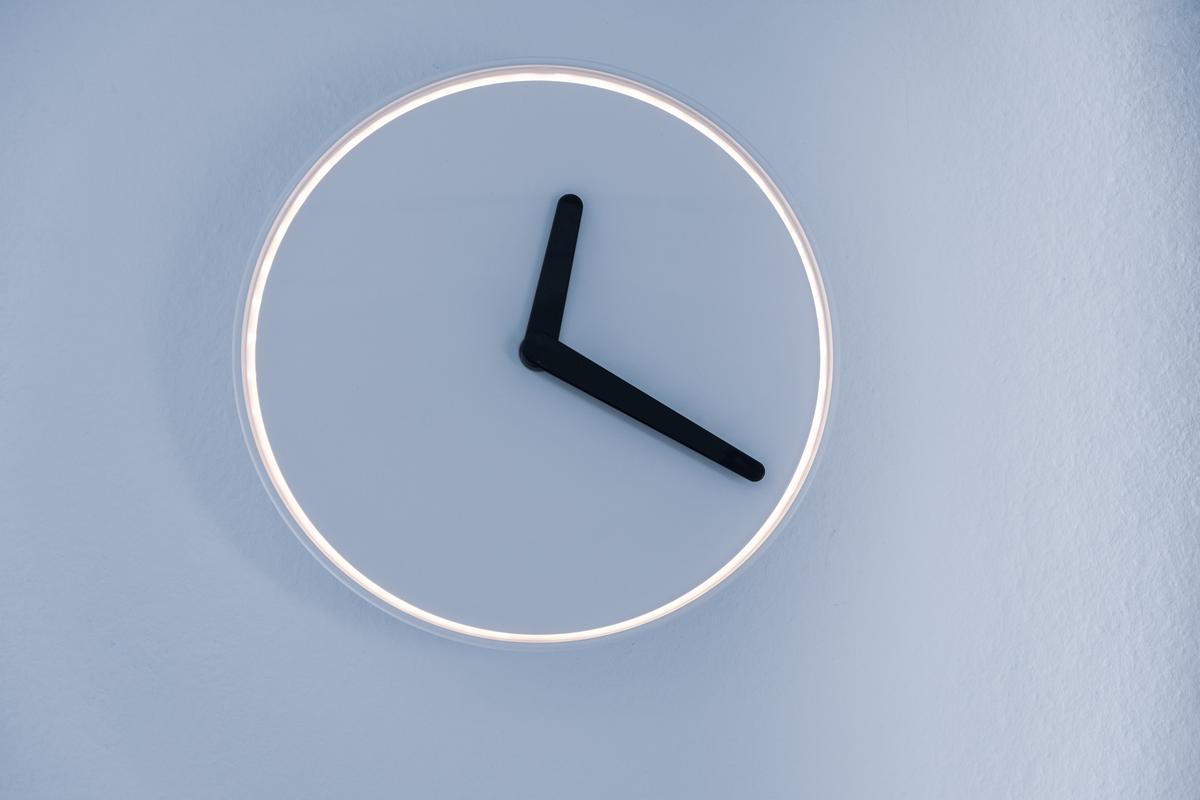
Photo by moritz_photography on Unsplash
Alcohol or Drug Use
We’ve all been there: enjoying a night out with friends or maybe unwinding after a stressful week, indulging in a drink or two for relaxation or revelry. But did you know that alcohol or drug use can actually be one of the culprits behind oversleeping? It’s no secret that sleep quality directly impacts how refreshed we feel the next day, and unfortunately, our favorite happy hour specials might be getting in the way of that well-deserved rest.Picture this: you’re out on the town, enjoying your favorite cocktail, and the night is young. As you continue sipping, your body is processing the alcohol, and eventually, you start feeling drowsy. You might think this will lead to a deep, sound sleep once you hit the pillow. However, that couldn’t be further from the truth! Alcohol actually leads to fragmented sleep patterns and interrupts our natural sleep-wake cycle, leaving us feeling groggy and potentially causing us to oversleep the following morning.It’s also important to note that drug use, both recreational and prescription, can have similar effects on our sleep quality. Some substances, like marijuana, can also lead to excessive daytime sleepiness or difficulty waking up in the morning. And let’s not forget about the notorious “hangovers” that come with excessive alcohol intake; that pounding headache and nauseous feeling isn’t exactly the best alarm clock!Now, we’re not suggesting you ditch your favorite IPA or forgo Friday night cocktails with friends. Instead, consider the potential impact on your sleep when making plans the next day, and always consume alcohol responsibly. Remember – it’s all about moderation. This way, you can enjoy your favorite brew or cocktail without sacrificing those precious hours of sleep. So, cheers to better sleep and fewer mornings spent hitting the snooze button!

Depression
Picture this: you’ve slept for a solid eight hours, yet when morning rolls around, you still find it practically impossible to peel yourself away from the warm embrace of your cozy bed. As you linger under your blankets, the minutes swiftly turn into hours, and before you know it, you’re wondering where half of your day has gone. Does this sound all too familiar? If so, it’s essential to consider that there might be more to your oversleeping than just fatigue. One hidden factor that shouldn’t be overlooked is depression.
Mental health conditions, like depression, are notorious for causing disruptions to regular sleep patterns. Often, those suffering from depression may find themselves sleeping much longer than their usual schedule. If you think about it, there’s a reason why sleep is so appealing, especially when depression leaves you feeling drained, both emotionally and physically. The act of sleeping provides a temporary escape from turbulent thoughts and unpleasant emotions, permitting the weight of the world to ease off your shoulders for a few hours. Therefore, it’s natural to gravitate toward what feels comfortable and safe in those moments.
With depression, sometimes the mere thought of getting out of bed can make you feel overwhelmed. Your body might ache with exhaustion, and your mind may keep your motivation locked away, making it all the more challenging to get up and go about your daily tasks. When you feel cornered by depression, opting to sleep provides a sense of solace – a way to recharge and regroup, even if it means missing out on the activities and responsibilities you’d typically pursue.
Now, it’s important to remember that sometimes, we all have days when we want to stay wrapped up in our blankets and are reluctant to face the day ahead. However, if you’ve noticed that your oversleeping is a consistent occurrence and may be affecting your life negatively, it’s crucial to seek professional help. Mental health professionals hold a wealth of knowledge and the necessary skill set to guide you through understanding and managing your depression. While taking that first step can be daunting, it’s essential to prioritize your well-being and take charge of your life.
The bottom line is, if you suspect that depression might be contributing to your oversleeping habits, don’t hesitate to reach out for support. You never know – addressing this hidden factor might just be the key to reclaiming your energy and enthusiasm for life.
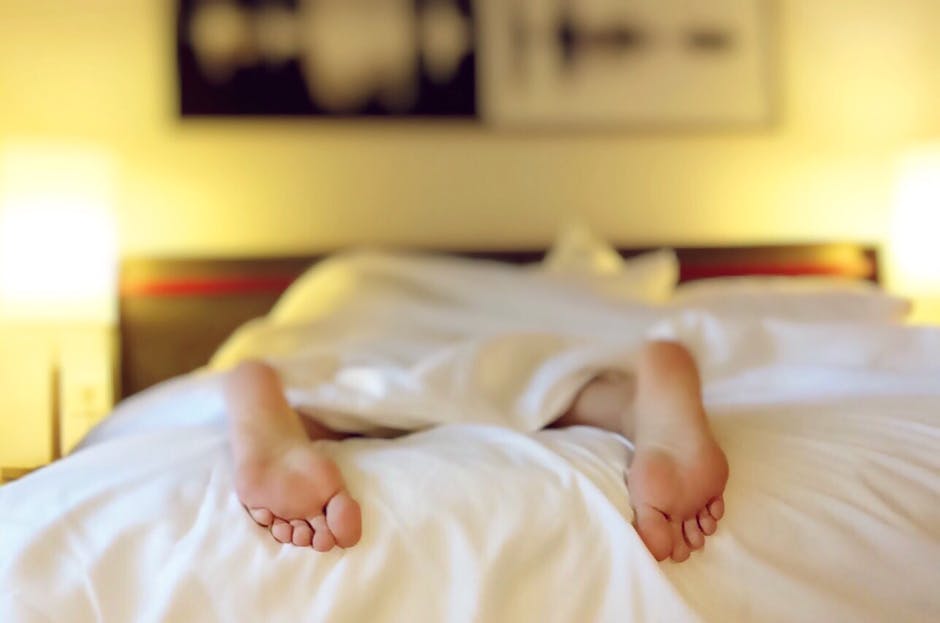
Lack of Physical Activity
Are you finding it difficult to drag yourself out of bed every morning? The culprit behind this could very well be the lack of physical activity in your daily routine. In today’s modern world, working at a desk all day or spending hours binge-watching your favorite shows might seem pretty harmless – but when it comes to sleep, these sedentary habits can have a noticeable impact on sleep quality and energy levels. Staying active not only keeps you in good shape but also plays a vital role in regulating sleep patterns and improving how well-rested you feel.
Better sleep starts with lacing up those shoes and getting moving! By incorporating regular exercise into your routine, such as walking, jogging, or even yoga, your body will reap the benefits of better sleep hygiene. Physical activity allows you to release stress and tension, making it easier to fall asleep and stay asleep throughout the night. Plus, exercise stimulates the production of endorphins, which can enhance your mood and make it more enticing to rise and shine in the mornings.
So, if you’re tired of hitting the snooze button and want to make a change, make sure to dedicate some time throughout your day to get active – your body (and sleep schedule) will thank you for it!

Chronic Fatigue Syndrome
Are you constantly hitting the snooze button on your alarm clock, struggling to drag yourself out of bed even after a full night’s sleep? Maybe it’s not just laziness or lack of motivation keeping you wrapped up in your cozy blankets. Chronic Fatigue Syndrome (CFS) could be the culprit behind those extra hours spent snoozing.
CFS is a complex and often misunderstood condition that affects millions of people worldwide. It goes beyond just feeling tired all the time – this disorder has a major impact on daily life, making it hard to perform even the most basic tasks. One of the key symptoms of CFS is prolonged and unrefreshing sleep, which can result in oversleeping.
You might be thinking, “Who doesn’t love getting extra shut-eye?” But for CFS sufferers, this oversleeping can be distressing, especially when they already feel like they’re missing out on life due to their other debilitating symptoms. What’s worse, the excessive sleep doesn’t even help them feel refreshed or more energetic. Instead, they are left feeling more tired and drained than ever.
The cause of CFS remains a mystery, with possibilities ranging from viral infections to hormonal imbalances or even a weakened immune system. Because of this uncertainty, it’s essential to be aware of the warning signs and seek medical advice sooner rather than later if you suspect that you or a loved one might be suffering from this life-altering illness.
If oversleeping is becoming a constant in your life and it’s accompanied by persistent fatigue, body aches, headaches, or difficulty concentrating, don’t brush it off as just needing to “catch up on sleep.” It might be time to talk with a healthcare professional about the possibility of CFS being the underlying cause of your excessive sleepiness.
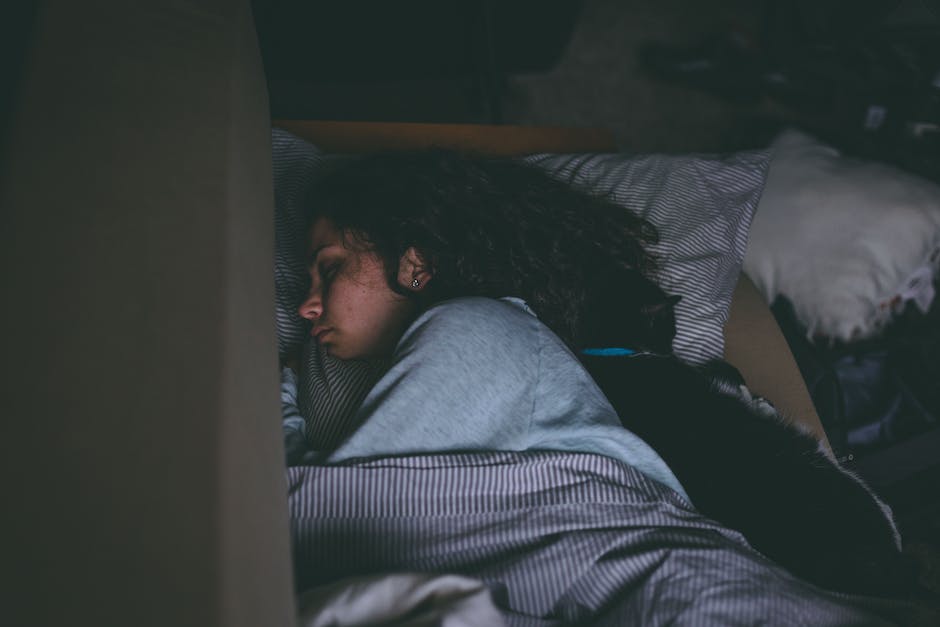
Hypersomnia
Are you tired of being labeled as the resident “sleeping beauty”? Do you often find yourself waking up way past your desired time, feeling groggy and disoriented? Well, you might want to consider the possibility of a sleep disorder called Hypersomnia.
Picture this: You plan to get a full night’s rest, with dreams of waking up fresh and early to tackle your to-do list. The alarm rings, you snooze (definitely a couple of times), and you’re still struggling to get out of bed. Turns out, Hypersomnia can be the culprit behind your unintentional oversleeping.
Hypersomnia is far from just loving those cozy blankets a tad too much. It’s a medical sleep disorder that affects not just your daily routine, but also your emotional, mental, and social well-being. It adds a whole new dimension to the classic struggle of getting out of bed in the morning.
In patients with Hypersomnia, even ample amount of sleep at night fails to cure their constant yawning and drowsiness during the day. It’s like fighting a sleep-inducing battle, with the enemy sneaking up on you round the clock. Oversleeping becomes almost as habitual as brushing teeth for those suffering from this disorder.
What causes Hypersomnia? It can either be idiopathic, meaning there’s no identifiable cause, or it can be a byproduct of other underlying issues like sleep apnea, depression, brain injury, or even certain medications. Treating Hypersomnia may thus require addressing the root cause first, along with tweaking lifestyle habits for better sleep hygiene. This can include setting a fixed sleep and wake-up schedule, avoiding caffeine or heavy meals close to bedtime, and creating a sleep-friendly environment.
So, if you’ve been tagged with “team always sleepy” and feel it’s affecting your quality of life, don’t hit snooze on a potential Hypersomnia diagnosis. Seek professional help, as understanding the problem might be the key to finally conquering those sweet, seductive extra hours of slumber.
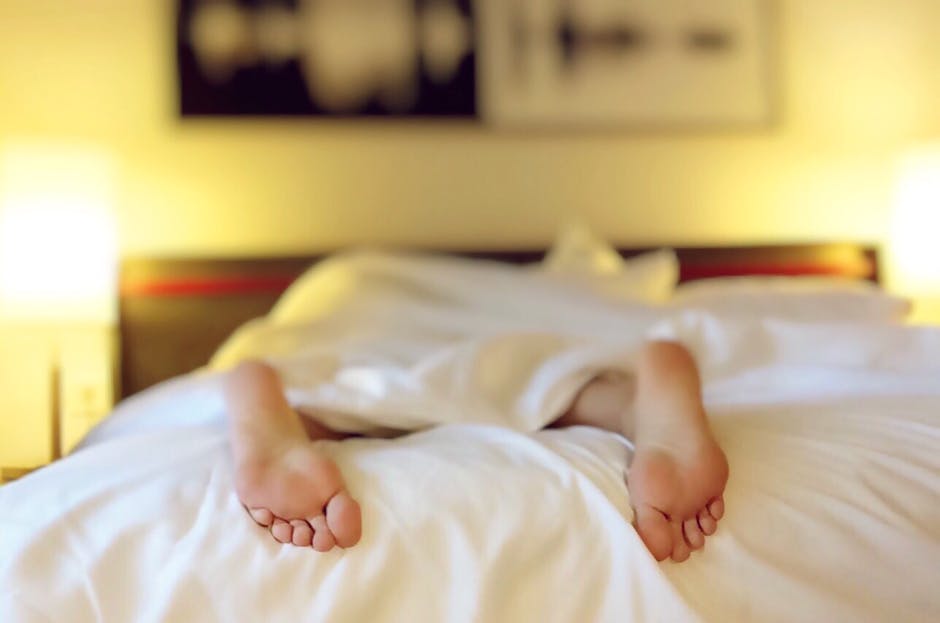
Medications
Are you hitting the snooze button one too many times? If you find yourself constantly oversleeping, you might want to check your medicine cabinet. Who would have thought that the pills you pop to help with other health needs could be the very reason you’re struggling to get out of bed?
That’s right, certain medications might be the culprits sabotaging your sleep cycle. Some prime suspects include sleeping pills, antihistamines, and even specific antidepressants. These medications, while helpful in their intended effects, can also cause significant drowsiness. This sleep-inducing side effect makes it quite challenging for your body to shake off the grogginess and wake up right on cue.
But don’t jump to conclusions just yet; it’s crucial to speak with your doctor if you suspect your medication is causing you to oversleep. After all, they know your medical history and what’s best for your health. They can work with you to figure out an appropriate solution, whether that means adjusting your dosage or exploring alternative treatments.
In the end, it’s about striking the right balance for your wellbeing. And with the guidance of your healthcare professional, you can take charge of your sleep cycle, regain control over your mornings, and say goodbye to those pesky extra hours under the sheets.

Poor Sleep Environment
In our constant pursuit to catch those elusive Z’s, we’re always seeking ways to make the most of our sleep hours, but did you know that the blame for oversleeping may lie in your own bedroom? That’s right, a poor sleep environment might be sneaking up on your sweet dreams, leading to oversleeping, grogginess, and affecting your productivity the next day.Consider your mattress: when was the last time you invested in a new one? Sleeping on an uncomfortable, lumpy, or worn-out mattress is like trying to rest on a bed of rocks – it’s just not happening! If you find yourself routinely waking up stiff and sore, it might be time to explore more supportive and comfortable mattress options.Next up: let there be darkness! While our bodies are designed to be awake during daytime and asleep at night, exposure to bright light – particularly the blue light emitted from electronic devices – can wreak havoc on our circadian rhythm, making it harder to fall asleep or causing disrupted sleep patterns. Embrace the dark side and invest in blackout curtains or a sleep mask to combat sneaky light sources. Turning off screens an hour before bedtime, or using blue light blocking apps, can also make a world of difference in your sleep quality.Finally, let’s talk about noise control. Do you live near a busy road, or have a habit of keeping the TV on all night? Loud, sudden, or continuous noise can make it difficult to drift off, or even worse, jolt you awake during the night. Try earplugs, a white noise machine, or soft background music to create a more serene sleep environment.In the end, the key to defeating oversleeping and embracing a more refreshed version of yourself is all about optimizing your sleep surroundings. Make the changes necessary to create a space that promotes a restful, rejuvenating slumber – you deserve it!
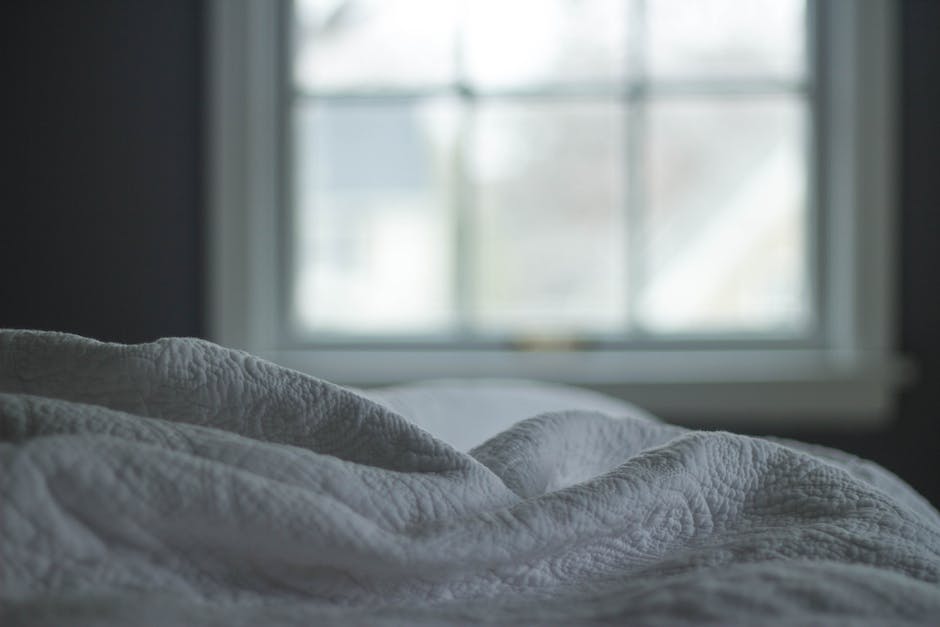
Stress
Introduction
In today’s fast-paced world, stress often acts as an unwanted companion that we just can’t seem to shake off. From work-related pressures to personal challenges, stress can negatively impact various aspects of our lives, including our precious snooze time. You might not even realize it, but stress is notorious for hindering a good night’s sleep – and the consequences can affect our daily routine.
Stress and Sleep
Although sleep should ideally act as an escape from the day’s stressors, it can be held captive by them. When stress manages to infiltrate our minds at bedtime, it can cause difficulty falling asleep or prevent us from reaching restorative sleep stages. As a result, that alarm clock ringing in the morning seems to announce the end of a blink-and-you’ll-miss-it nap rather than a full night’s rest.
Oversleeping
Your body, in a desperate attempt to catch up on the much-needed rest, may coax you into hitting that snooze button more often than necessary. This oversleeping ends up becoming a subconscious coping mechanism to balance out the poor sleep quality caused by stress.
Combatting Stress for Better Sleep
There are various ways to combat stress in order to improve sleep patterns. Consider incorporating relaxing techniques before bedtime, such as meditation, yoga, or deep breathing exercises, to help calm your mind. For some, therapy or counseling have proven to be beneficial in mitigating stress and its effects on sleep.
Conclusion
In a nutshell, being aware of stress’s role in sleep disruptions and taking proactive steps to manage it effectively can help you bid farewell to those oversleeping mornings. Say hello to a refreshed, energetic day ahead!

While oversleeping can be a frustrating and seemingly inexplicable problem, it’s crucial to look at the potential underlying causes and make appropriate adjustments to your sleep habits, environment, and lifestyle. Recognizing these contributing factors and making necessary changes can lead to a more balanced, restorative sleep schedule and ultimately promote better health and well-being.

Recent Comments